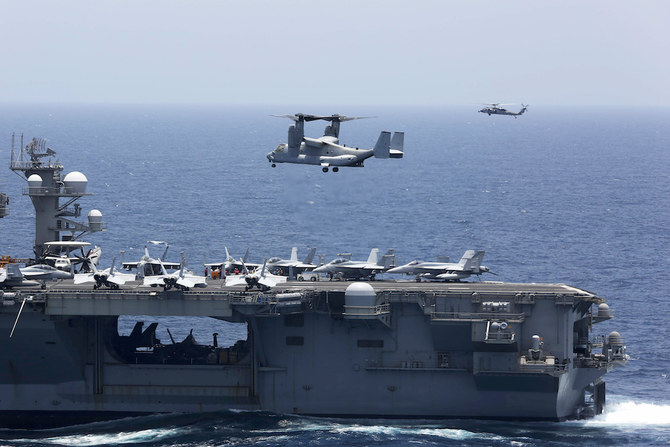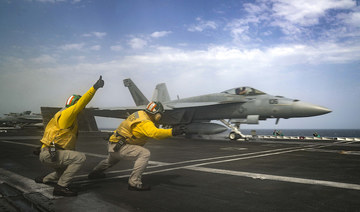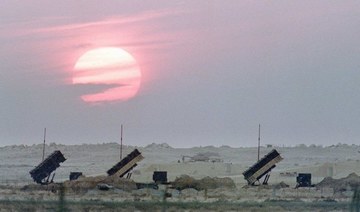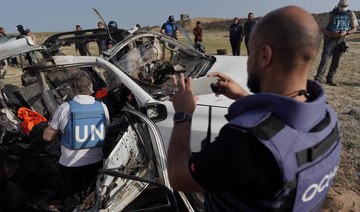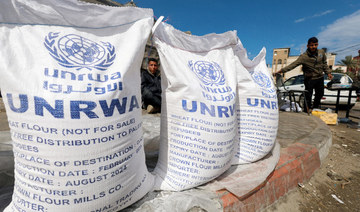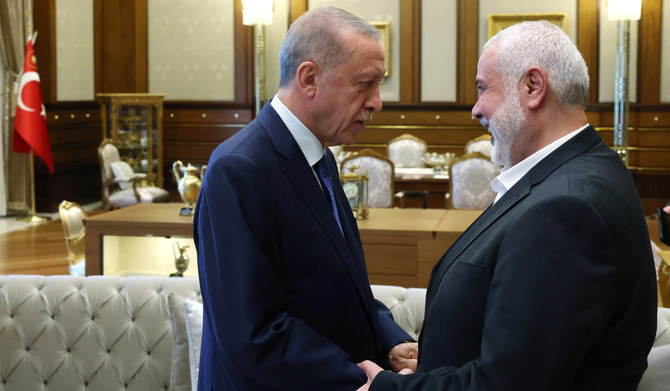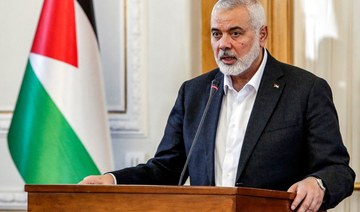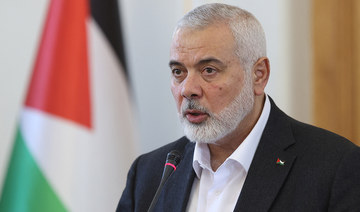WASHINGTON: President Donald Trump's administration charged Tuesday it was "quite possible" Iran was responsible for sabotage of Gulf oil interests but said its robust response had stopped potential attacks on Americans.
Secretary of State Mike Pompeo said the United States has not made "a definitive conclusion" that can be presented publicly over sabotage incidents of oil tankers off the UAE or drone strikes on a crude pipeline in Saudi Arabia.
"But given all the regional conflicts that we have seen over the past decade and the shape of these attacks, it seems like it's quite possible that Iran was behind these," Pompeo told a US radio show before heading to Congress.
"Most importantly, we will continue to take acts that protect American interests and that work to deter Iran from misbehavior in the region, which has the real risk of escalating the situation such that crude oil prices rise," he said.
Yemen's Houthi militants, who are allied with Iran and are being hit hard by Arab coalition airstrikes, claimed responsibility last week for a drone strike on a major east-west pipeline in the Kingdom, which was forced to shut down temporarily.
John Bolton, Trump's hawkish national security adviser, earlier this month warned of "unrelenting force" if Iran strikes US interests as he announced the deployment to the region of an aircraft carrier strike group, followed by nuclear-capable B-52 bombers.
Top Trump officials delivered a classified briefing to the full Congress, where rival Democrats have accused the administration of hyping intelligence and pushing the United States dangerously close to war.
The US defense chief said Trump's administration was seeking to deter Iran but not start a war, after he took part in the briefing.
"This is about deterrence, not about war. We are not about going to war," Acting Defense Secretary Patrick Shanahan told reporters after exiting the closed-door meeting with Pompeo.
"We have deterred attacks based on reposturing of assets, deterred attacks against American forces," Shanahan said. "Our biggest focus at this point is to prevent Iranian miscalculation. We do not want the situation to escalate."
Pompeo said that he and Shanahan placed Iranian actions within the context of "40 years of terrorist activity," since the 1979 Islamic revolution.
The briefing did not satisfy many of the Democrats, who say that the heightened tensions are the results of the Trump administration's shunning of diplomacy.
"I worry very much that, intentionally or unintentionally, we can create a situation in which a war will take place," Senator Bernie Sanders, an independent running for the Democratic presidential nomination, said



